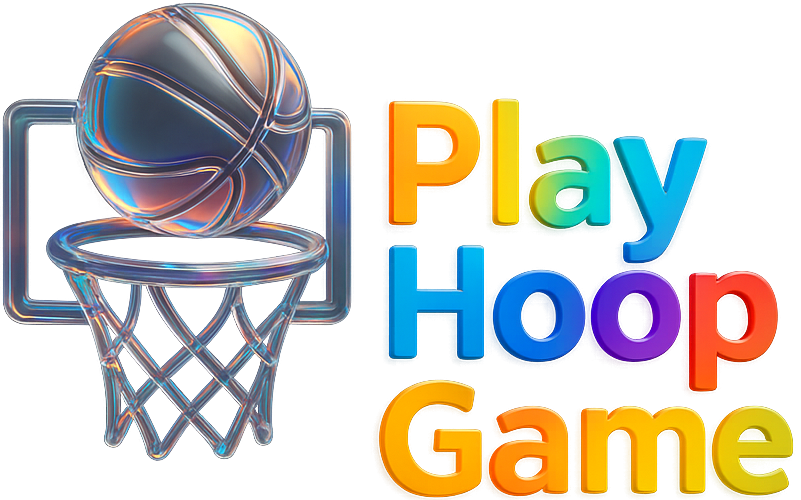The group chat lit up last Tuesday. You know the one. The one with your core gaming crew, a chaotic mix of PlayStation loyalists, die-hard PC snobs (I say that with love), and that one friend who's still rocking an Xbox just to be different. The trailer for 'Aetherium Echoes' had just dropped. It was gorgeous. Cyberpunk-meets-cosmic-horror, co-op, everything we’d been waiting for.
The hype was real. Palpable, even through text messages. Emojis were flying. Plans were being made. Until someone asked the question.
The dreaded question.
"Is it crossplay?"
A few minutes of frantic Googling. Then, the collective sigh that you could feel across three different states and two competing hardware ecosystems. Nope. No crossplay at launch. Maybe later. The classic, non-committal "we're looking into it." The hype train screeched to a halt, and just like that, another promising game night evaporated into the digital ether.
It’s 2025. We have AI that can write poetry and cars that drive themselves (sort of). So, my question is this: why in the world are we still getting multiplayer games without crossplay?
The 'Walled Garden' is Wilting, But Not Dead Yet
Let's be real for a second. There was a time when this made a twisted kind of sense. Back in the console war days, your online service was your moat. Xbox Live, PlayStation Network... these were the digital fortresses, the "walled gardens" designed to keep you in and everyone else out. Your friends list was a feature, a selling point. "Buy a PlayStation, because that's where Dave and Sarah are." It was a business strategy, and for a while, it worked.
But that era feels ancient now. Games like Fortnite, Apex Legends, and Call of Duty didn't just punch holes in those walls; they blew them wide open with C4. They proved that a bigger, unified player pool is better for everyone. It means faster matchmaking, healthier game populations, and—most importantly—it lets people just play with their friends, regardless of the plastic box under their TV.
You'd think the lesson would have been learned. And to some extent, it has. Sony, once the most stubborn holdout, has opened its gates significantly. But the ghost of that old mentality lingers. It’s like a stubborn weed in the otherwise beautifully manicured lawn of modern gaming.
So, It’s 2025, Why Are We Still Getting Multiplayer Games Without Crossplay?
My first, gut reaction is always to just scream "corporate greed!" into a pillow. And while that’s definitely a big slice of the pie, the reality is a little more... complicated. A little more frustratingly nuanced.
The developers will often point to the technical hurdles. And they aren't exactly lying. Getting entirely different architectures—Sony's network, Microsoft's, Nintendo's, Steam's—to talk to each other isn't as simple as flipping a switch. It involves unifying friends lists, managing different patch certification processes (getting an update approved on console can be a whole different beast than pushing it on PC), and ensuring the netcode is robust enough to handle it all. It’s work. I get it.
But here’s the thing: these are largely solved problems. Major game engines have built-in tools for this. Third-party services exist to facilitate it. For a multi-million dollar AAA studio in 2025, "it's hard" is less of an explanation and more of a flimsy excuse. It's like a Michelin-star chef saying they can't make you an omelet. Sure, it takes effort, but it's part of the job description now.
The real culprit, the one lurking behind the technical smokescreen, is almost always business politics. Think about it this way: when you buy a cosmetic skin on PlayStation, Sony gets a cut. When you buy it on Xbox, Microsoft gets a cut. When a PlayStation player and an Xbox player are in the same lobby, who has domain over that shared digital space? Who gets the data? Who controls the messaging? Platform holders are still clinging to the idea of owning the customer, and crossplay muddies those waters. They’ll allow it, but they often make developers jump through expensive, time-consuming hoops to do so. It’s a silent tax on our ability to have fun.
And then there's the indie dev's dilemma. For a small team, those certification costs and the extra man-hours actually are a mountain. They might desperately want to implement crossplay, but the resources simply aren't there. So while I'll give a pass to a five-person studio pouring their heart into a passion project, I have zero sympathy for a publisher with a nine-figure marketing budget.
Does It Actually Matter That Much? (Spoiler: Yes.)
This isn't just a minor inconvenience. It has a real, tangible impact on the games we play and the communities we build. A game launching without crossplay in 2025 is launching with an expiration date stamped on its forehead.
The player base is fractured from day one. Instead of one large, healthy community, you have three or four smaller, anemic ones. This means longer queue times. It means skill-based matchmaking struggles to find balanced games. It means niche game modes are dead on arrival. For a game that lives or dies on its player count, it's a self-inflicted wound.
I’ve watched it happen time and time again. A brilliant, fun, but not-quite-blockbuster game comes out. The PC community is small but dedicated. The PlayStation community is a bit bigger but more casual. The Xbox community is somewhere in between. Separately, they all slowly wither. Together? Together, they could have thrived for years. It's a tragedy, and it's completely avoidable. It prevents a good game from becoming a great community hub, which is what the best multiplayer experiences, from big AAA titles to fun little web games like those on CrazyGames, are all about.
But forget the metrics and the player counts for a second. The most important cost is the human one. It's the simple, profound disappointment of not being able to share an experience you love with the people you care about. Games are my social space. They’re how I stay connected with friends who have moved away, with family in different cities. When a game puts up an arbitrary wall between us, it’s not just a technical limitation; it’s a social one. These games are supposed to be about fun, but they often feel like they're just an extension of the competitive landscape of the platforms themselves.
FAQs About the Crossplay Conundrum
Isn't it just impossible for some games to have crossplay?
Technically, no. If a game can be built to run on different platforms, the networks can be made to talk to each other. The bigger issue is often game balance, especially for competitive shooters. The "mouse and keyboard vs. controller" debate is real. But this is also a solved problem! Many games solve this by having input-based matchmaking (you play with others using the same controller type) or by simply letting players opt out of crossplay with PC players if they're on a console. The option is what matters.
Why do some games have cross-progression but not crossplay?
This is a great and super frustrating question. Cross-progression (your unlocks and level are shared across platforms) is a different technical system. It's about tying your game account to a central, publisher-owned account (like an Activision or EA account) rather than just your PSN or Xbox profile. It's often easier and politically simpler to implement than full cross-platform lobbies. It's a nice feature, but it often feels like a consolation prize.
So, if it’s 2025, why are we still getting multiplayer games without crossplay? Is it just pure greed?
It's not just greed, but that's the biggest ingredient. It's a mix of platform holders wanting to maintain control of their ecosystem (and their 30% cut of sales), the real (but often overstated for AAA) technical and resource costs, and sometimes, just plain old inertia. It's the way things used to be done, and some companies are slow to change. But yes, a lot of it comes down to money and control.
How can I tell if a game has crossplay before I buy it?
Unfortunately, you have to do your homework. The official store page (on Steam, PSN, etc.) should list it in the features, but it's not always prominent. Your best bet is to check the game's official website or their social media FAQ. A quick search of "Is [Game Name] crossplay?" is usually the fastest way. Don't just assume!
I keep coming back to that moment when the group chat goes silent. That's the real cost of this stubborn, outdated practice. It's the silence. It's the fun that doesn't get to happen.
The future of gaming isn't about which box you own; it's about the worlds we share and the people we share them with. Crossplay is no longer a feature; it’s a fundamental requirement for a connected world. It's a simple acknowledgment that our friendships aren't defined by our choice of console. And any developer or publisher in 2025 who doesn't understand that isn't just behind the times—they're actively working against the very thing that makes gaming special: connection. And as players, the most powerful thing we can do is support the games that get it right, and let the ones that don't, like a game of Cannon Balls 3D, just fade into irrelevance.

























